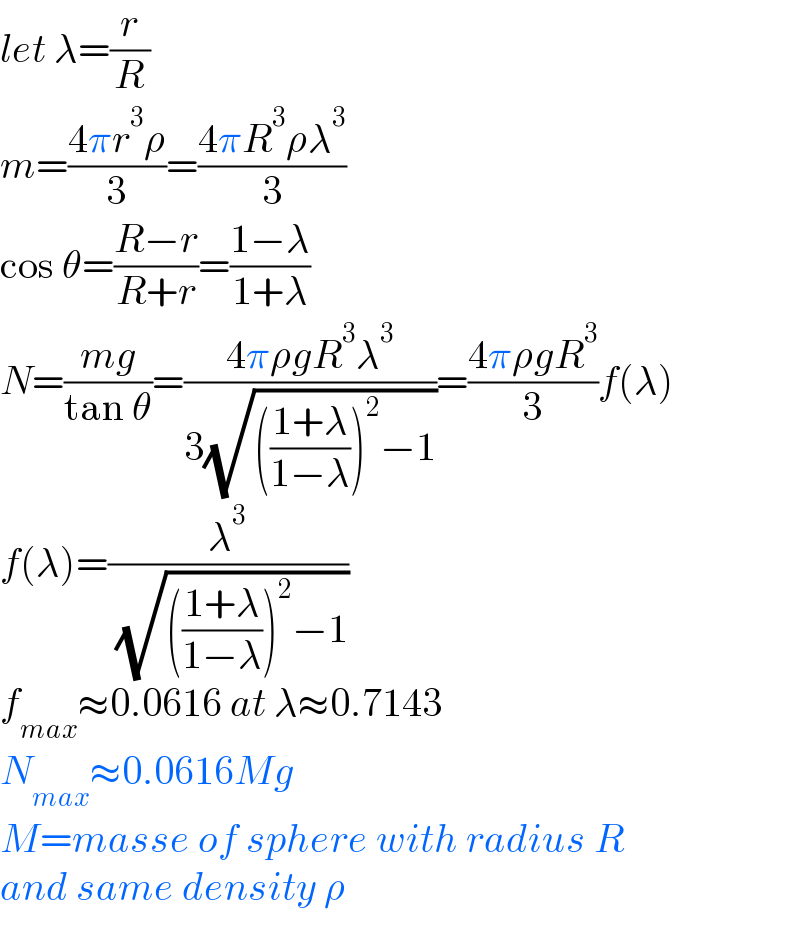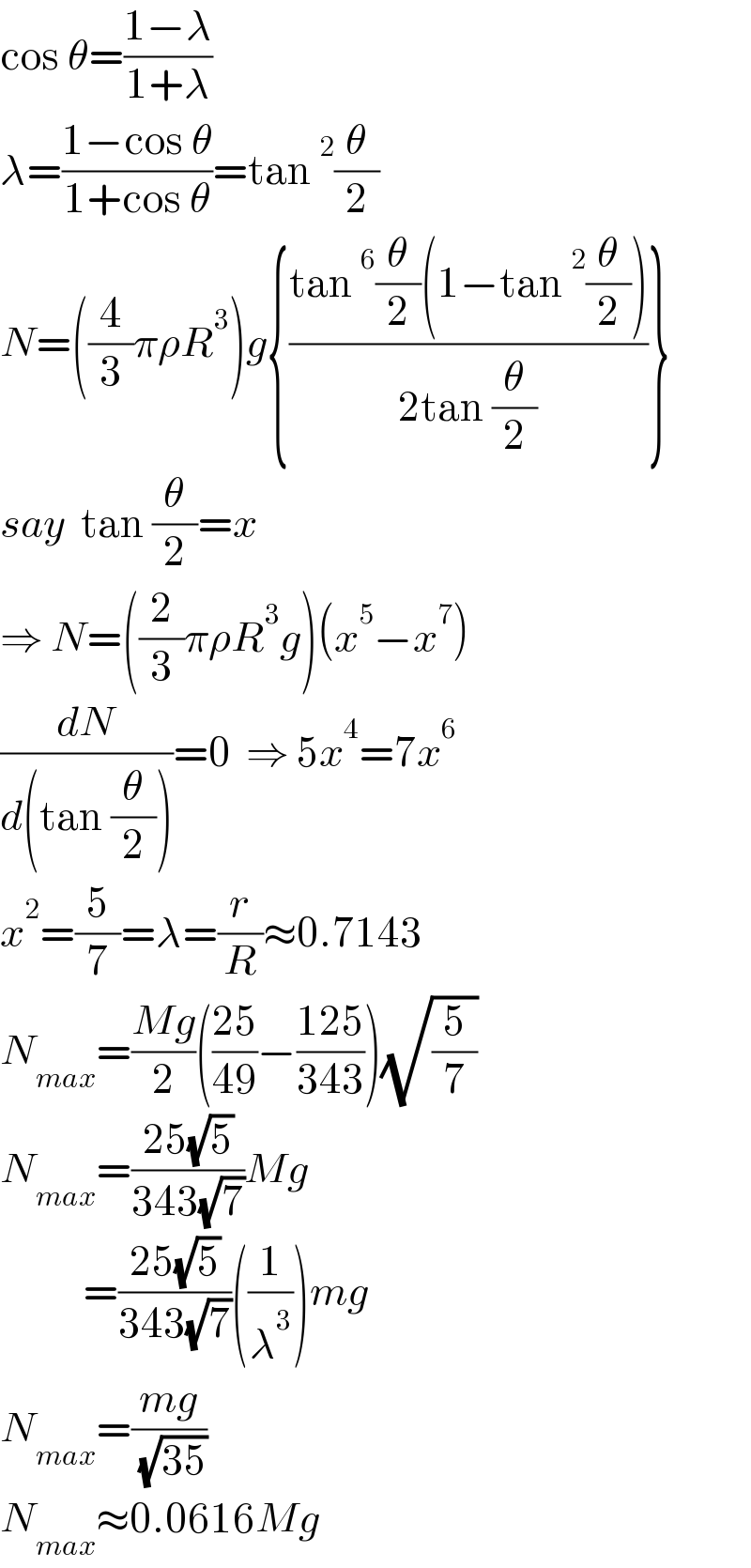
Question and Answers Forum
Question Number 131729 by ajfour last updated on 07/Feb/21

Commented by ajfour last updated on 07/Feb/21

Answered by mr W last updated on 08/Feb/21

Commented by mr W last updated on 08/Feb/21

Commented by ajfour last updated on 08/Feb/21

Commented by ajfour last updated on 08/Feb/21

Commented by ajfour last updated on 08/Feb/21

